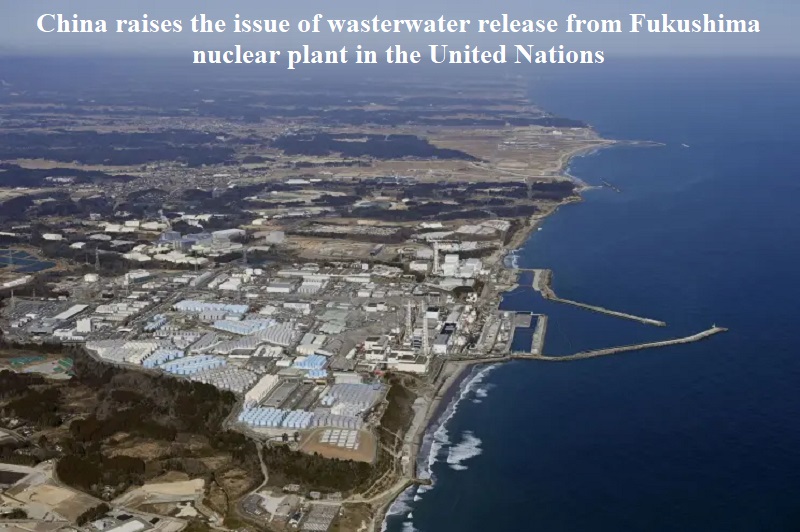
China has brought up the matter of the release of wastewater from the Fukushima nuclear plant at the United Nations, pressing Japan to cease the operation immediately. China has characterized the discharge of nuclear-contaminated wastewater into the Pacific Ocean as a self-centered and irresponsible action.
This topic was raised during a comprehensive assembly of the United Nations General Assembly convened to deliberate on collaboration between the UN and the Pacific Islands Forum on the 25th of August.
Geng Shuang, China’s deputy permanent representative to the UN, articulated that Japan’s decision to release the wastewater unilaterally, without regard for the welfare of the public, has generated the peril of nuclear pollution.
China’s stance is that Japan has thus far not effectively addressed the substantial concerns of the global community about the long-term dependability of devices meant to purify nuclear-contaminated water, the credibility and accuracy of data related to such water, and the comprehensiveness and validity of the discharge monitoring program. Geng emphasized that China and other stakeholders have repeatedly emphasized that if the nuclear-contaminated water is deemed safe, there exists no necessity to discharge it into the sea; however, if it’s deemed unsafe, then it should not be released.
Geng underlined that although Japan has cited a report from the International Atomic Energy Agency (IAEA), the agency has clarified that the decision to discharge the water is an autonomous choice made by Japan and that the report does not constitute a recommendation or endorsement of such a policy.
“The IAEA report cannot serve as a ‘pass’ for Japan to push forward the discharge of nuclear-contaminated water. The report cannot grant Japan legitimacy for the discharge, nor can it absolve Japan from its moral responsibility and obligations to international law,” Geng stated.
He proceeded to underscore that the ocean is the shared possession of all humanity, and more than a decade after the Fukushima calamity, Japan’s resolution to embark on the discharge strategy demonstrates indifference to uncertainties and opposition expressed by the international community. He asserted that this course of action would lead to secondary harm for local inhabitants and potentially for people worldwide.
Geng conveyed China’s firm appeal for Japan to terminate this misguided action, halt the discharge, and engage with neighboring nations candidly and benevolently. He also urged Japan to manage the disposal of nuclear-contaminated water in a responsible manner and accept stringent international oversight.

Post Your Comments